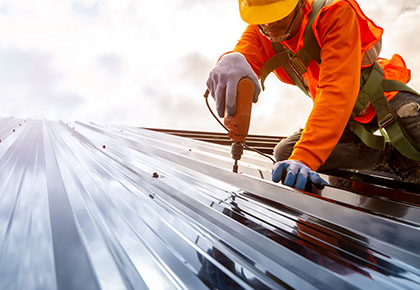-
5 Surprising Reasons to Raise Your HOA Assessments
If your main concern is to avoid increasing assessments, you may want to reconsider. As a board member, one of your primary fiduciary responsibilities is to protect property values, and assessments are an investment that helps do just that. -

Reserve Funds, Assessment, or Loan: 3 Ways to Pay for a Capital Improvement Fee
Great capital improvements lead to better property values. Read on to see the three ways to pay for them and the pros and cons for each. -
Smart Financial Planning
Safeguarding a strata corporation’s operating and reserve funds is one of the main fiduciary duties of all board members, not just the treasurer. This means strata councils must protect the financial interests of the strata corporation and its members. -
Reserve Funds, Assessment or Loan: 3 Ways to Pay for Capital Improvements
Strategic capital improvements lead to better property values. Read on to see the three ways to pay for them and their pros and cons. -
6 essential HOA pool rules to enforce in your community
Summertime is swim time, and for the most part, it’s a plunge into carefree fun. But without the right swimming pool safety practices, your residents and association could be at risk. -

HOA pet rules: 4 things to know
If you live in a pet-friendly community, it’s essential that your association board set boundaries to keep order within your community. Many of the issues that become problems in pet-friendly communities have very little to do with the pets – after all, they can’t clean up after themselves. -
FirstService Residential Keeps Energy Costs on a Tight Leash During Dog Days of Summer
High summer temperatures bring high electric bills – especially this summer, as heat waves and soaring temperatures continue to blaze across the U.S. and Canada. But FirstService Residential’s innovative FS Energy program is keeping residents cool, curbing electric bills and lowering energy emissions and usage – and it saved $1.5 million in energy costs for NYC residents last summer. Now, the program is rolling out to multifamily buildings in Chicago and Miami. -
Four ways to fund an HOA capital improvement project
Living in a residential community means around-the-clock routine maintenance to preserve the community and its assets. But there comes a time when one of your assets will reach the end of its useful life and require a replacement or significant repairs. -
Six summer energy conservation tips
Summer’s longer days mean more time to enjoy warm weather and sunshine, but they also mean higher energy bills. There is a bright side, however: by implementing an energy management program within your community, you can help keep costs down without sacrificing comfort. -

Capital improvements vs repairs and maintenance: What’s the difference?
Maintaining your buildings’ assets is not a one-size-fits-all proposition. The common areas require a broad range of routine maintenance and repairs to keep them looking good and operating smoothly. -
Hiring a reserve study company: Five things to know
In our guide to capital improvements , reserve studies and their relationship to capital improvements and preventive maintenance were discussed at length. -
Five Ways to Get Ready for a Pool Inspection
A pool inspection can be a major source of anxiety for board members and residents. Don't throw in the towel; there are steps you can take to make sure your inspection goes...well, swimmingly. -
3 Ways to Pay for an Association Capital Improvement Project
When your association has to invest in its property, whether for repairs or a new construction project, the financing for that work must be considered as carefully as the work itself -
Is Installing Electric Vehicles Charging Stations the Right Choice for Your Community?
The number of plug-in electric vehicles (PEVs) on the road is quickly growing, which means the need for conveniently located battery charging stations is also on the rise. What does this mean for your association? -
Is Your Community Ready for Plug-In Electric Cars (PEVs) and Charging Stations?
The Nissan Leaf and Chevy Volt made their debut as the first US mass-market plug-in electric vehicles (PEVs) more than five years ago. Nearly half a million have jumped on the PEV bandwagon. What does this mean for community associations? -
Reopening Amenities: Creating New High-Rise and HOA Swimming Pool Rules
As the weather heats up and stay-at-home orders surrounding COVID-19 are lifted, it's important to remember the social distancing guidelines in place. -
5 Steps to the Best Reserve Study Firm
Nothing lasts forever…and you need to have a plan to replace major items and systems before their useful lifespans end. How do you create that plan? Start with a quality reserve study. -
Selling Your Home? Here Are Some Helpful Tips to Add and Value and Appeal
Selling your home? Here are a few tips that will help you add appeal and value to your home. -
10 Apartment Building Amenities that Will Rock the Roofs of Your High Rise Condos
Making your high-rise more marketable starts at the top: your rooftop! Under-utilized space can be enhanced to offer improved amenities, increasing property values and improving lifestyles of everyone in the building. -
Set your association up to win with our HOA audit checklist
Every community experiences a transition from the developer to the newly independent Board of Directors. Here is a property management turnover checklist to make yours a success. -
A Capital Improvements Plan for Your Florida Association
A successful capital improvement project requires a lot of planning to ensure that things go as smoothly as possible. Does your community know where to start? -
What to Consider Before Buying a Vacation Home in Florida
A weekend or vacation getaway may turn out to be a good long-term investment, but it's important to do a little research first. Consider these five factors before you commit. -
10 key tips to managing your Georgia community pool
In Georgia, many communities enjoy their swimming pool amenities. it is important that you make sure your pool is in compliance with state and local regulations and ordinances. -
3 ways to pay for capital improvement plans
When your association has to invest in its property, whether for repairs or a new construction project, the financing for that work must be considered as carefully as the work itself.